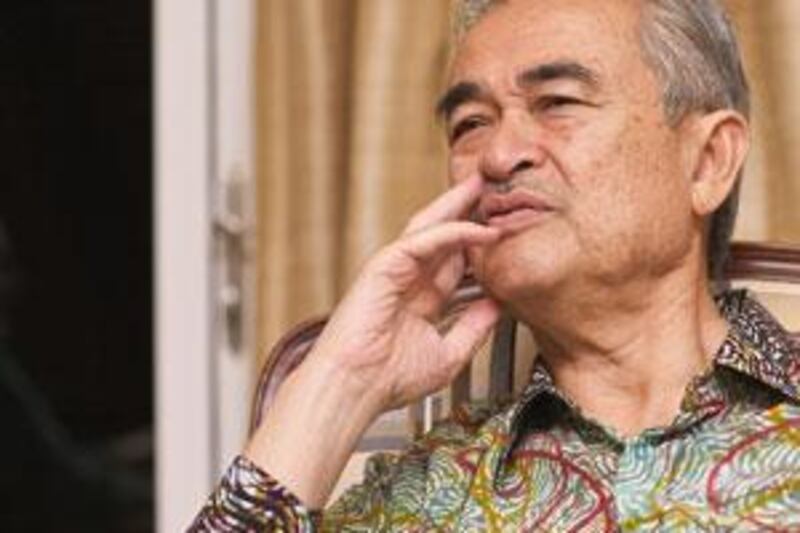KUALA LUMPUR // The keys to stability and economic success in Malaysia, according to the country's former prime minister, are political and personal, involving a "civil" approach to Islam, unwavering commitment to higher education and a genuine respect among citizens for each other. In an interview with The National that coincided with the Women's Islamic Initiative in Spirituality and Equality conference in the Malaysian capital, Abdullah Ahmad Badawi laid out what he believed were the ingredients of a successful Islamic state.
A successful model of governance "must ensure equal opportunity for all, so no group feels discriminated against", said Mr Abdullah, who served as prime minister from 2003 until he retired in April. While in office, he approved funding for the Cordoba Initiative, an umbrella project for advancing relations between Muslim countries and the West. "We have to create a meeting point for Muslims and non-Muslims," he said. "Malays would want Malaysia to be an Islamic country, and the government visibly doing things for Muslims."
He said he believed strongly in the concept of Islam Hadari, which roughly translates as civil Islam. The concept was especially important in Malaysia as one third of the population belongs to minority groups, he said, adding that taking the viewpoints of minorities into account was crucial to cultivating a sense of national identity. The Malaysian population is a mixture of a Muslim Malay majority and non-Muslim Chinese and Indians.
"I think the practice of democracy is acceptable by the people," said Mr Abdullah, who was also the head of the United Malays National Organisation, the country's largest political party. "There is a feeling that the government cares, that we're an inclusive democracy." One of the educational policies pushed by Mr Abdullah during his term was to make Arabic compulsory for Muslim students. "Seven years from now all Muslims in primary and middle school will speak three languages. They will speak English, Arabic and Malay, and for the Chinese kids, they will also speak Mandarin."
This, he suggested, would give young Malaysians an edge in doing business with the West, the Arab world and China. But he added that it was the schooling pupils received in Islamic studies - gently delivered - that would ensure future generations of tolerant Malaysian Muslims felt connected to their religion and the language in which it was revealed. "We ensure that we have training for teachers in pedagogy and how to teach religion. And we warn people that if you do anything in the name of Islam, you must not scare them."
Malaysia has recently been praised for its success in cultivating harmony between minority groups and building a strong civil society and national identity. When Barack Obama, the US president, addressed the Muslim world from Cairo last month, he cited Kuala Lumpur along with Dubai as models for Islamic countries to emulate. Botswana's president, Festus Mogae, also recently said he wanted his country to emulate Malaysia's social and educational structures. Botswana has Chinese and Indian minorities.
relass@thenational.ae






